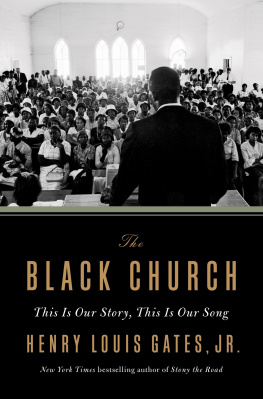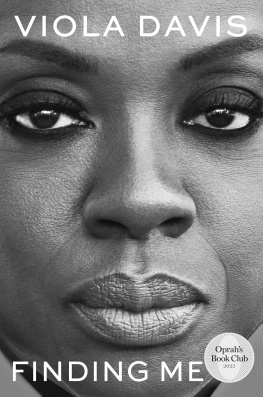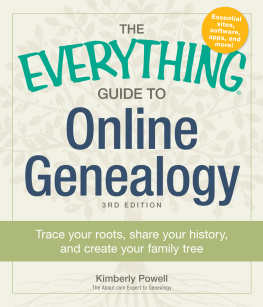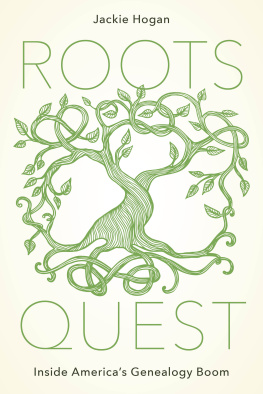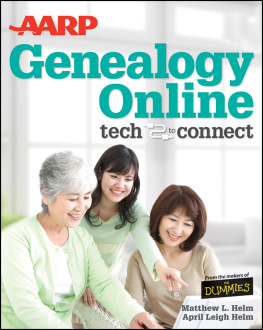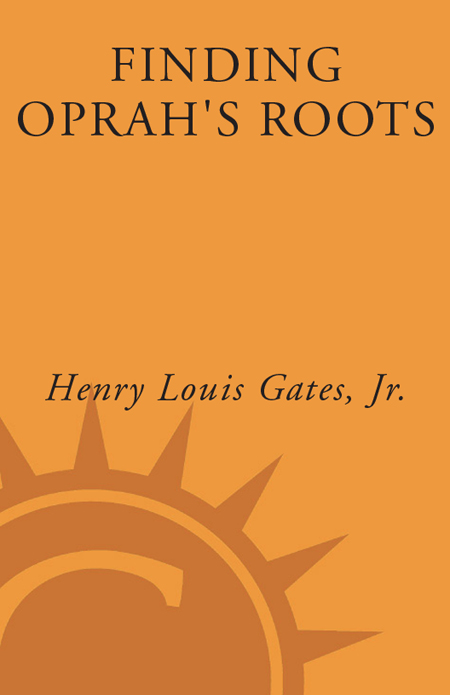
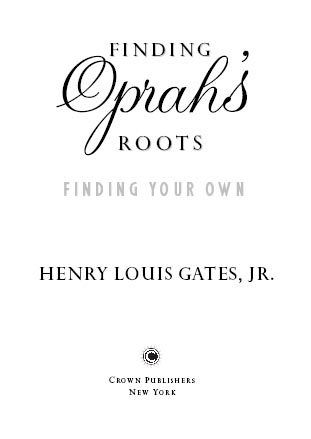
Contents
For Henry Finder
If a race has no history, if it has no worthwhile tradition, it becomes a negligible factor in the thought of the world, and it stands in danger of being exterminated.
C ARTER G. W OODSON
What was your name? And why dont you now know what your name was then? Where did it go? Where did you lose it? Who took it? And how did he take it?
M ALCOLM X
Introduction
T his is a book about finding your rootshow one goes about the intriguing, fascinating, sometimes frustrating process of determining the identity of the many individuals who make up the many branches of your family tree.
Genealogical research today combines detective work, history, and science in a way that can be intensely thrilling, regardless of who you are or where your ancestors came from, whether Western Europe, the Middle East, the Far East, Latin America, or Africa. Judging from the range of emotions that experiencing this process released in me, I believe that recovering the ancestors on ones family tree can be especially rewarding for African Americans, in part because of the tragedy of our shared history as the descendants of slaves, people whose identity has been largely invisible to us. Of course, it can also be a very difficult undertaking, one that requires many painstaking hours and the patience to endure many false leads.
For an African American, tracing ones ancestors can also be a very painful experience: When one is fortunate enough to discover the identity of an ancestor who lived as a slave, one is forced to relive the brutal details of the slave past, a past that our ancestors experienced not in the abstract, of course, as we do through history books or films, but in their everyday lives. Discovering the identities of ones ancestors who lived through, and survived, the horrors of the peculiar institution of slavery makes American history, generally, and African American history, more specifically, tangible and immediate and palpable, in a manner not otherwise experienced. Genealogy can be a veritable time machine, enabling us all, to some extent, to be travelers through time and space, reencountering the past in the most particular or personal way. For African Americans, whose access to their collective historical past has been severely limited until very recently, genealogy can open a window or portal onto the broad past of their people since they arrived on these shores as slaves precisely by resurrecting the identities of their own direct ancestors.
In writing this book, Ive tried to be open and honest about what we can and cannot do through genealogy. I want to share with you the steps you must take to unearth your familys past, even though I know that not all of your efforts will bear fruit. Nevertheless, from my own experience, I know that the end result will be well worthwhile, even when ones searches inevitably meet with dead ends.
Ive decided to focus this book on examples drawn from the PBS documentary Oprahs Roots, which aired in January 2007. I was the executive producer of that documentary, as well as its on-camera host. Based on her experience with the program, Oprah Winfrey has generously agreed to allow me to use details we uncovered while researching her family tree so that youll have a sense of what is involved in the genealogical research process. I expect that these examples will also prove entertainingprimarily because Oprah has an especially fascinating family tree. Using a mix of old-fashioned sleuthing and the most sophisticated techniques of modern genealogical analysis, we were able to trace her roots back to the early part of the nineteenth century, when her great-great-grandparents were slaves in Mississippi. Then, with state-of-the-art DNA analysis, we were able to go back even further, all the way to Africa.
If we could find out so much detail about Oprah Winfreys ancestors, we most certainly can help you to find out a great deal about yours. Indeed, the evidence is already out there: in original documents now digitized and available through the Internet as well as those still buried in dusty archives. You just need to know where to look for itand what to look for. Im going to try to supply you with that information.
To undertake the research for this project, I was very fortunate to be able to employ three absolutely top-notch genealogists, Jane Ailes, Johni Cerny, and Jan Hillegas. They did an incredible jobdigging around in libraries and attics and churches all over the country, even visiting some old graveyards. Their efforts yielded invaluable results: They discovered information about Oprahs ancestors that researchers had been looking for for more than twenty years! And they shared their knowledge of the genealogical research process with me, which was a revelatory experience. I am a trained scholar. I know how to look for old documents, how to decode their sometimes Byzantine meanings, how to interpret and understand the past, but there were many things I needed to learn about building a family tree. There are many tricks to that endlessly fascinating trade.
Although I was lucky that I could work with professional genealogists with years of accrued wisdom, you may not be so fortunate. That is why I decided to write this book: to share their research methods with you as best I can. I sincerely believe that if youre willing to put in the work, you can use these techniques to identify your ancestors, even if those ancestors were nameless, illiterate slaves, not even recognized in their lifetimes as human beings, with legitimate names, by the larger American society.
Why do this? I mean, it is perfectly irrelevant, in one sense, what ones ancestors did a century or two ago. The fact that my great-great-great-great-grandfather was an excellent casket-maker has no bearing on my life, at least none that I can perceive immediately. But, of course, thats not the point. Understanding our history, as Americans and as African Americans, can sometimes help us to imagine our futureour future as individuals, our future as a people. The great African American historian Carter G. Woodson famously wrote that a people cannot determine their future adequately if theyre ignorant of their past. For Woodson, this aphorism was a call to arms for black people to record and write and study their own history as if their livesor the collective life of our peopledepended upon creating a written historical record. But this is as true for individuals and families as it is for an entire ethnic group; in fact, I believe that reconstructing their familys past with as much specificity as the historical archives will allow is an even more urgent task for individualsespecially African American individuals and their families. Doing so enables us all to begin to tell a new narrative of American history as a whole, and helps us to understand new dimensions about our individual selves, about how we got here from there, how we emerged as the person we are from a long line of sometimes quirky, sometimes cantankerous ancestors, our direct genealogical kinsmen and women.
On a grand scale, reconstructing our individual familys past, finding all of its branches and confronting all of its complexities, piece by piece, bit by bit, is the only way to begin to re-create, to retell, the larger narrative of American history. After all, a peoples historical narrative can consist only of a summary of the voices that created that history. And if our voices have been silenced or excluded, how can the black voice testify to what we have done, what we have seen, what we have heard since our ancestors first landed in this country in the early 1600s? How else can we testify to how we got over the thicket and morass of slavery, Jim Crow segregation, the war for our civil rights, and beyond? Embracing our individual histories enables us to expand the collective narrative of America, helping all of us to understand that the founding of this republic was not only red, white, and blue, it was also, indelibly, black.
Next page

